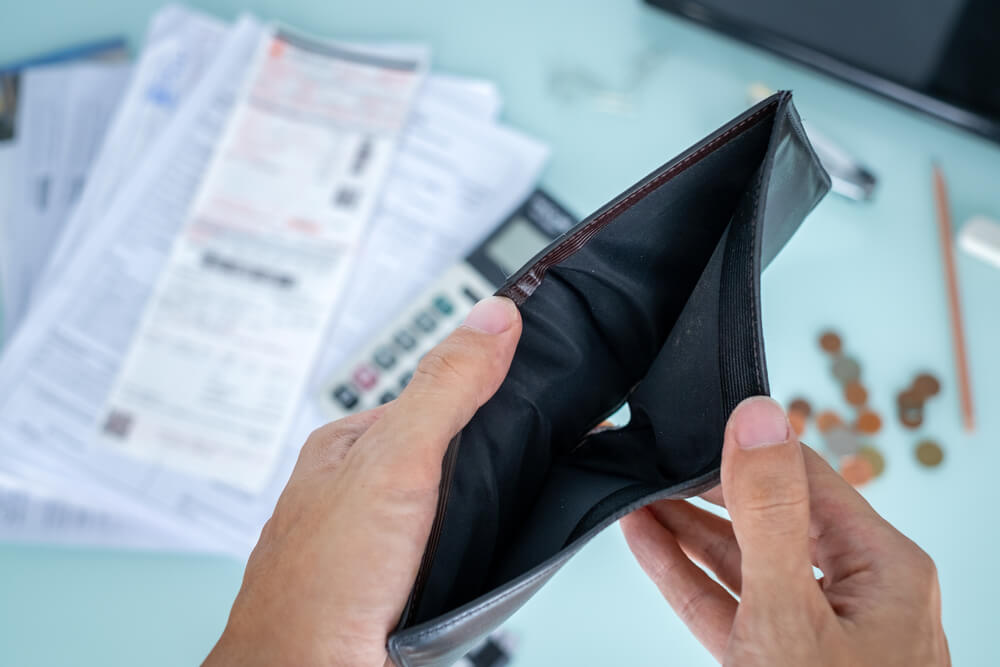
Are you finding yourself knee-deep in debt at the moment? Do you find it difficult to keep up with payment terms you previously thought you could afford?
Nowadays, it isn’t surprising that many people have found it difficult to keep their debt in check. The coronavirus made it challenging for people to make ends meet, let alone maintain a savings account or properly manage their debt.
Thankfully, there are ways to make sure that you don’t drown in overdue bills. Learn more about it now.
First: Manage Your Finances
Before we get into the nitty gritty of things, you need to understand that having a clear idea of where you stand financially can help you decide about how you want things to pan out.
First, list down all your expenses — rent or mortgage payment, utilities, and groceries. These are things you need to pay for whether you like it or not and a chunk of your income may go to these payments.
Next, think about miscellaneous spending. Things such as eating out and going to the cinema can put a dent in your pocket if you’re not aware of it.
Compare how much you earn in a month and how much you spend. They should both add up to the same amount, or you should have a little leftover for savings. If you find that your income can’t sustain your spending habits, then some things have to change.
Ask yourself if miscellaneous expenses are truly necessary. While we need to treat ourselves every now and then, you may be overdoing it to the extent of not being able to keep up with debt payments.
There are some expenses you can cut down, such as going to the cinema and eating out. You may also want to consider working out at home if you don’t really need any gym equipment.
If you find that your income is not enough despite cutting down on expenses, try to look for other ways to earn money. Get a part time job or work online. If you are into arts and crafts, consider opening an online shop.
Look for other ways to save money. For example, be more mindful about your electric bill. Turn off lights and appliances when you don’t need them or when you’re out of the house.
Get Rid of Debt
Now that you have your finances in order, look at your debt. How much are you spending every month on debt payments?
It is always good advice to pay off debt as soon as you can. The feeling of living debt-free is incomparable and will allow you to make bigger financial decisions in the future. Whenever you make a payment, this goes to your credit report which banks and loan institutions have access to.

Why a Good Credit Report Matters
Did you know that some of your spending habits are privy to creditors?
Your credit report contains information such as how much you spend on debt payments, the loans you have, and other such information that creditors will deem helpful in determining whether you are worthy of receiving another loan or not.
Maintaining a good credit record is actually pretty easy if you are able to properly manage your finances especially from the very beginning. However, if you’re only learning about credit reports now, it’s not too late to start making better financial decisions. Learn more here.
Negotiate Payment Terms
Knowing where you stand on the financial side of things gives you an idea of how you should negotiate debt payments.
And yes, you CAN negotiate with your bank or creditor!
What is Debt Negotiation?
Debt negotiation is a proactive approach to controlling your finances and reducing your debt. The main purpose of debt negotiation is eventually eliminating your debt. This occurs between yourself and your creditor.
Before contacting your creditors, here are some things you need to prepare:
- If you have recently encountered financial difficulties, let them know. This could be loss of job, your business folding up, terminal illness, or even divorce.
- Inform them of how you are earning money at the moment and what your current expenses are. If you are still employed, you may show your recent payslip.
- Be honest with them about how much you can afford to pay for repayments.
- If you can present to them evidence of why you are in financial hardship, such as a medical certificate, then all the better.
If some documents are not prepared, it’s fine — just explain your situation as honestly as possible and you and your creditor will most likely come to an agreement over the phone. Make sure to keep track of your interactions with creditors, such as the date and time of calls, as well as what was discussed.
How Does Debt Negotiation Work?
Coming to a mutual agreement with your creditors will only work if they can see that you are willing to pay off your debt despite your situation. The borrower may offer to pay it off by lump sum payment in hopes of greatly reducing debt.
There are debt negotiators who may handle your case on your behalf, but there is no need to hire one when you are confident about how you can manage your finances moving forward. What matters is that you are forthcoming about how you intend to take control over money matters and that you are in it to improve your financial health.

Creditors are very used to people such as yourself who seek help or assistance in eliminating debt. They are aware that life may throw you a curveball (or two) when you least expect it and they are more than willing to negotiate.
Options To Choose From
Remember that the aim of debt negotiation is to get rid of debt. The borrower may offer a lump sum but there are also other ways to negotiate:
- Why not ask for more time to pay off the debt, especially if you know your current situation is temporary? This applies when you are in-between jobs and you’re already applying for a new one.
- If the entire amount of your debt is too big, you may request for a lower amount that you can commit to paying off in full.
- Financial hardship is never easy and you can always apply for reduced monthly payments until your debt is paid off.
- While this is rarely approved, why not try to ask if the interest rate can be waived off?
- A more drastic approach is to show that you are simply incapable of paying and ask if your debt can be forgiven or waived. (NOTE: Not all debts can be waived. Learn more about it here).
- If you have several debts, have them all consolidated into one debt. Debt consolidation is quite common and applies to many consumers. Read more about it here.
If you have come to an agreement with creditors, make it a point to stick to your end of the bargain. Pay your bill ahead of time or on the due date itself to avoid late fees and make sure that you have properly budgeted your finances on a monthly basis.
Benefits of Debt Negotiation
- You get to settle your debt
- You may be able to save money
- You will avoid filing for bankruptcy
- Lessen financial stress
As you can see, taking action against your debts will help ease the burden of worrying about unpaid bills and creditors knocking on your door. Don’t let stress get in the way of living your best life. It’s all about being aware of your spending habits and making positive changes in your lifestyle.





















